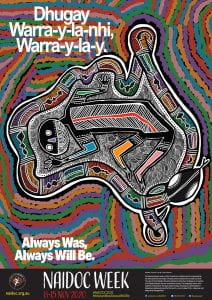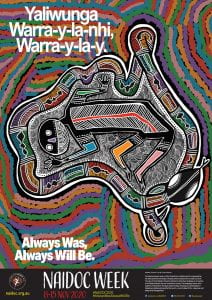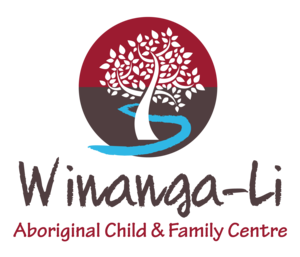NAIDOC
Here are some Gamilaraay and Yuwaalaraay and Yuwaalayaay (GYY) language resources that we have developed for NAIDOC Week.
The website for official downloads is https://www.naidoc.org.au/
We offer these GYY translations of the yearly themes for those who wish to use them.
2025
"The Next Generation: Strength, Vision & Legacy"
Although it would be possible to develop a translation of the full 2025 theme, it would be quite long and complex. Therefore, Winanga-li has decided to simplify the theme and focus on children as the essence of ‘the next generation’ in translating the theme: Birralii-gal-gu Ngiyaningu "For our children".
Birralii
The dictionary has birralii recorded in Yuwaalaraay and Yuwaalayaay for ‘child’, and gaay, gaayli and
gaaynmara for Gamilaraay, but currently birralii is often also used in Gamilaraay.
-gal
Although plurals are not usually used in GYY languages, the dictionary says for birralii, “unlike many other nouns it often has the suffix -gal (many) attached; -gal is very rarely used on other words.”
-gu
The
"purposive suffix", i.e. it shows the purpose or reason for an action.
Ngiyaningu
our (three or more)
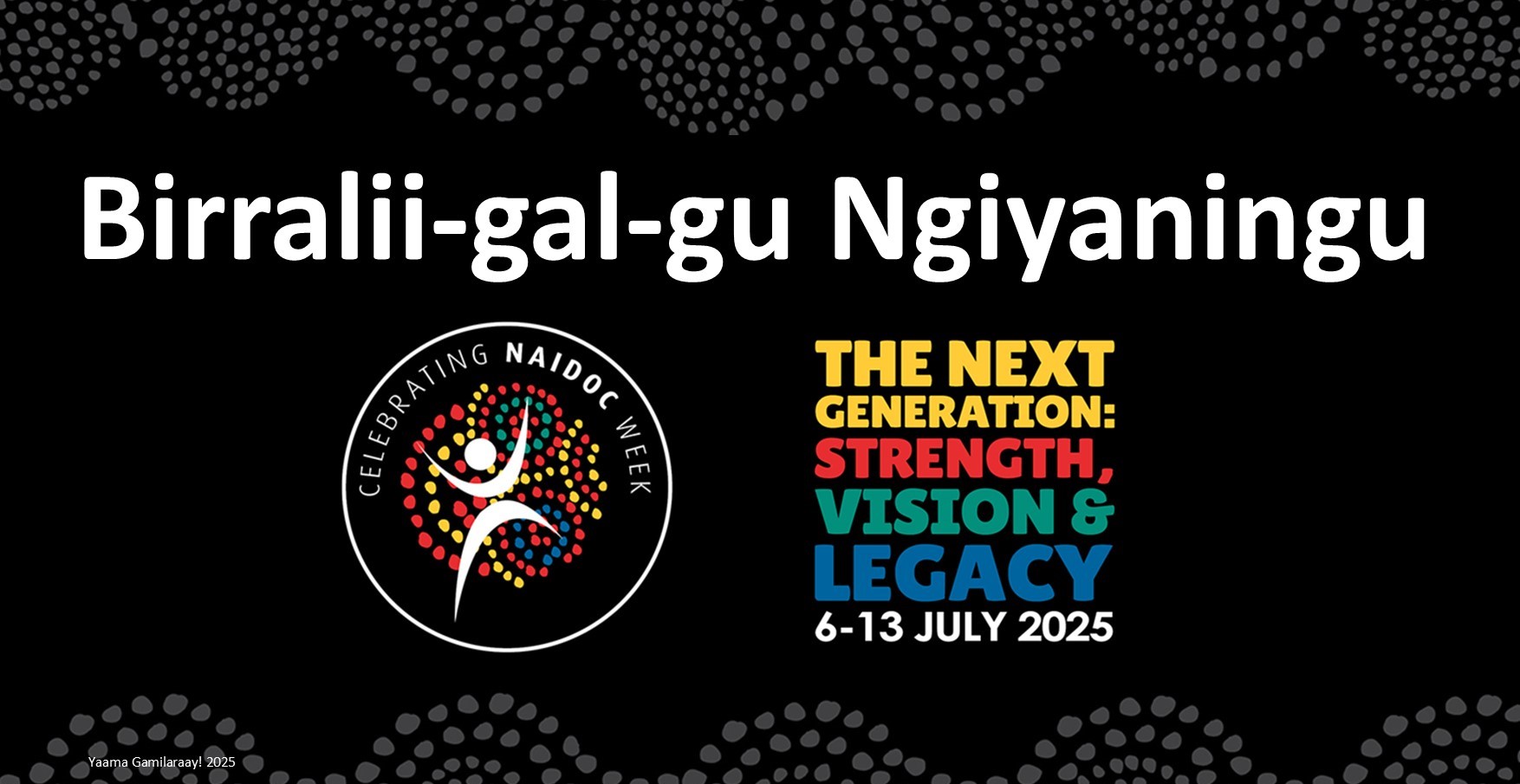
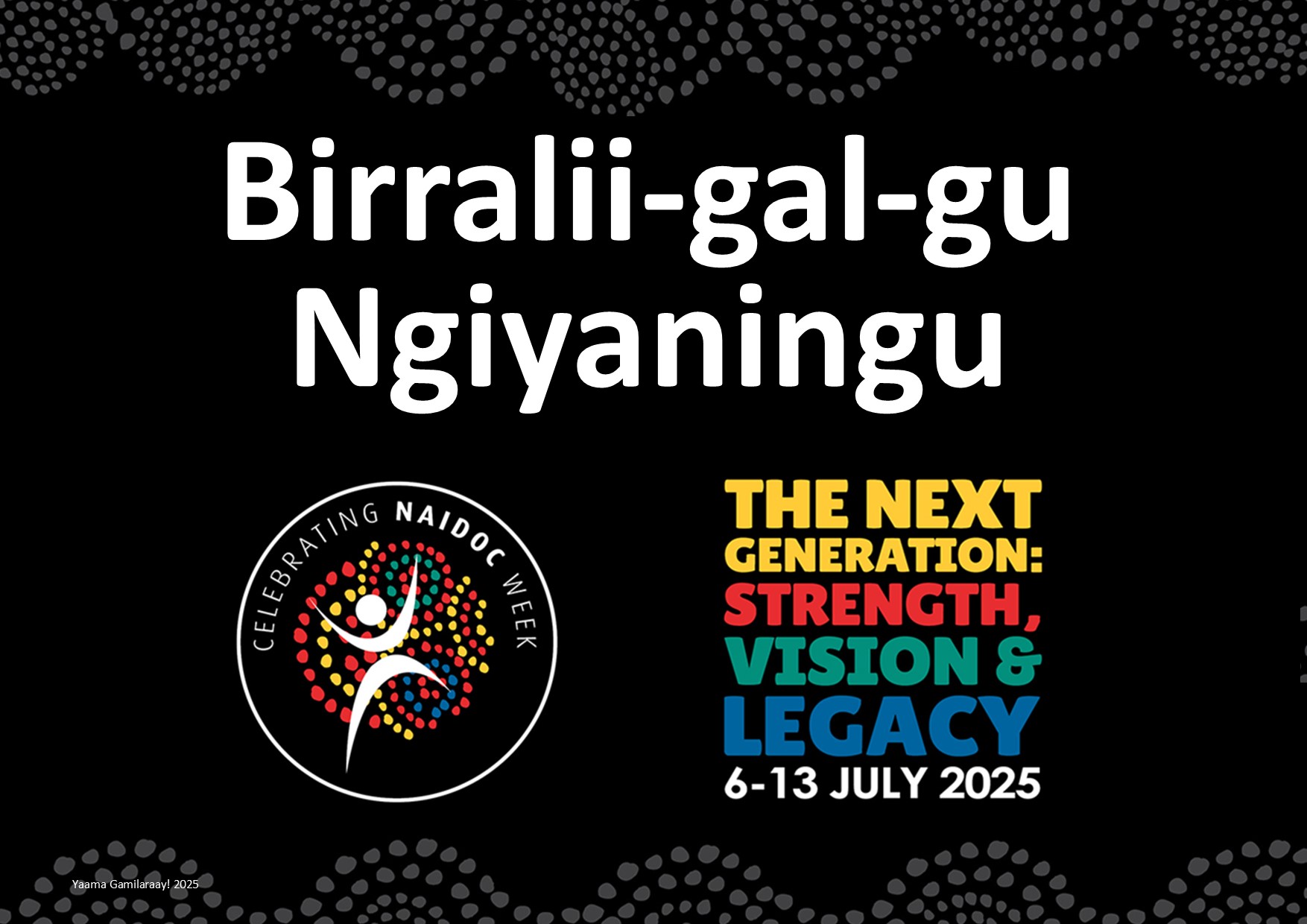
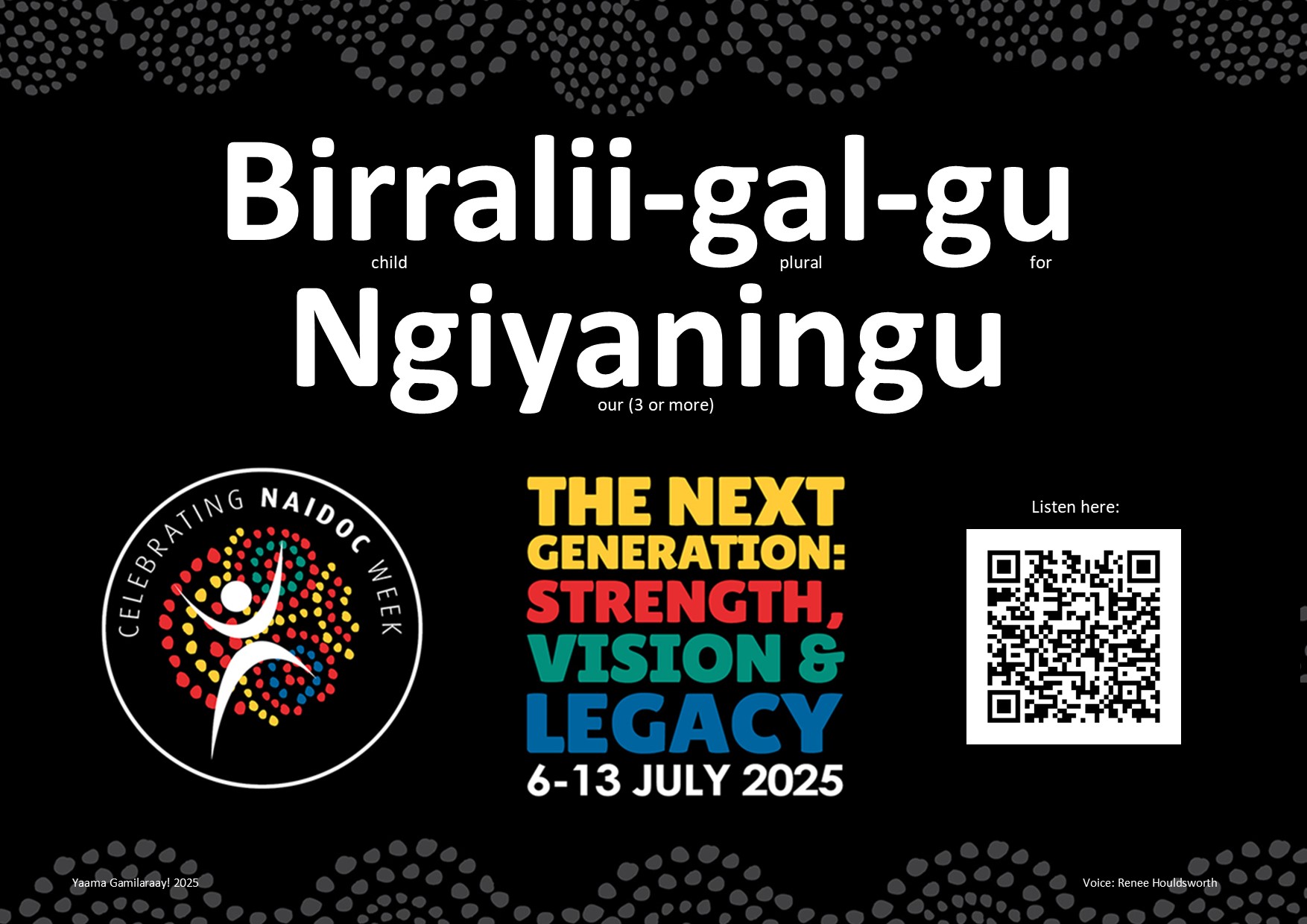
2024
"Keep the fire burning! Blak, loud and proud"
Burn
There are two GYY forms of the word for "burn":
1. If someone is burning something else, it is the transitive form gudhuwa-li. (It also means "to cook something".)
e.g. "I am burning the wood" - Wugan ngaya gudhuwa-lda-nha.
wood I
burn-l class continuous-present
"Keep burning the wood" - Wugan gudhuwa-lda-ya.
wood burn-l class continous-command
e.g. "That wood is burning" - Wugan nhama gudhuwa-y-la-nha.
wood that burn-y class-continuous-present
"Keep the fire burning" refers to the fire, not the wood, so we need to add a suffix -ma-li to the intransitive form to
make it gudhuwa-ma-li, with the command form:
i.e. "Keep the fire burning" - Gudhuwa-y-ma-lda-ya.
burn-y
class-transitive suffix-continuous-command
In this case we do not need to add a separate word for "fire".
The continuous command verb form is a way to translate "keep (doing it)".
Blak
This refers to "Aboriginal people", so we are using the word mari.
Loud
We are using the word for "noise", wulul.
Proud
Gayaa can translate as "happy", "pleased", "proud".
Sound files (by James Gindjurra Hogbin):
Gudhuwa-y-ma-lda-ya-Mari-wulul-gayaa.mp3
Gudhuwa-y-ma-lda-ya.mp3
mari-wulul-gayaa.mp3
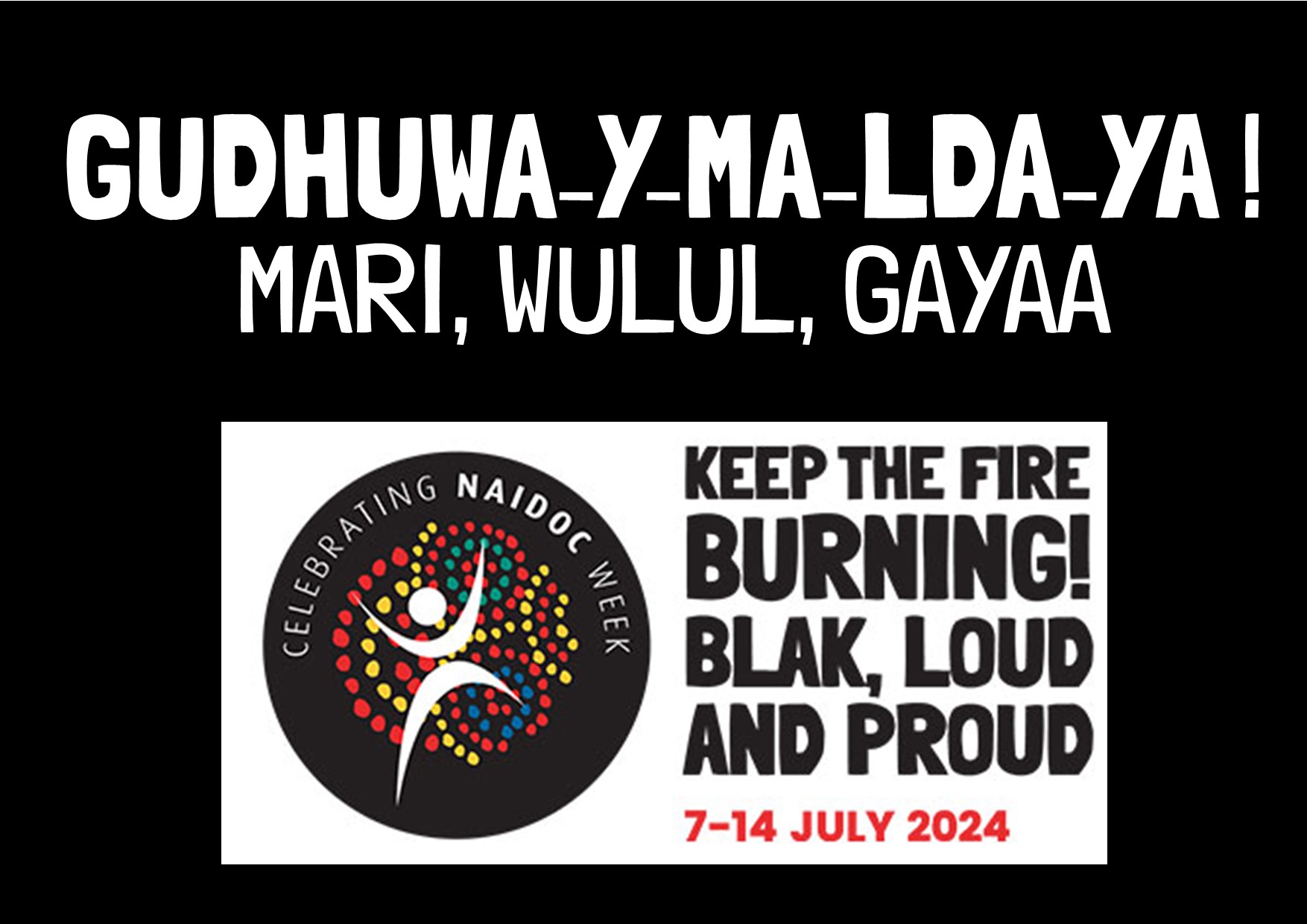
Download a pdf here: naidoc-2024.pdf
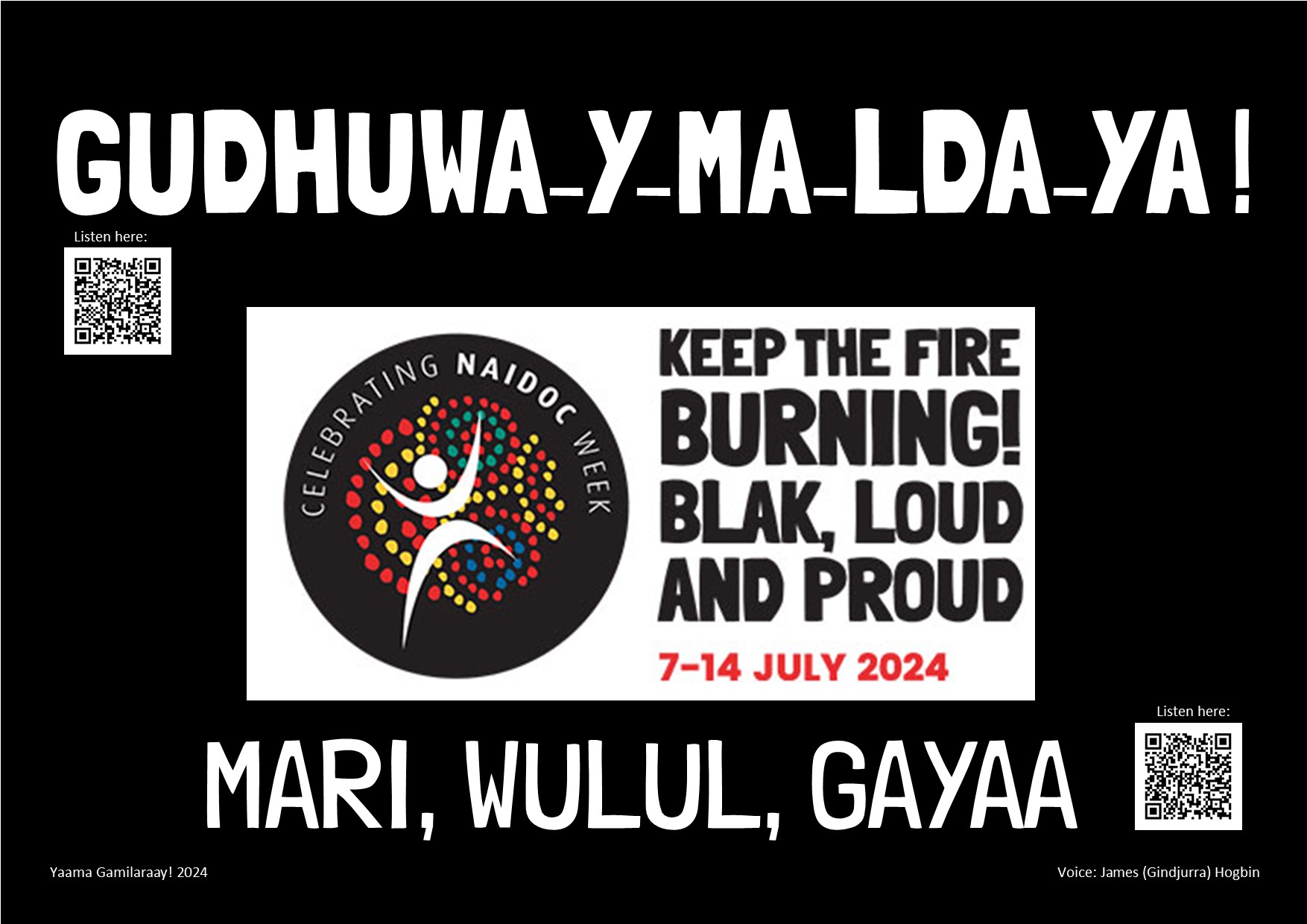
Download a pdf
here: naidoc-theme-2024_QR-codes.pdf
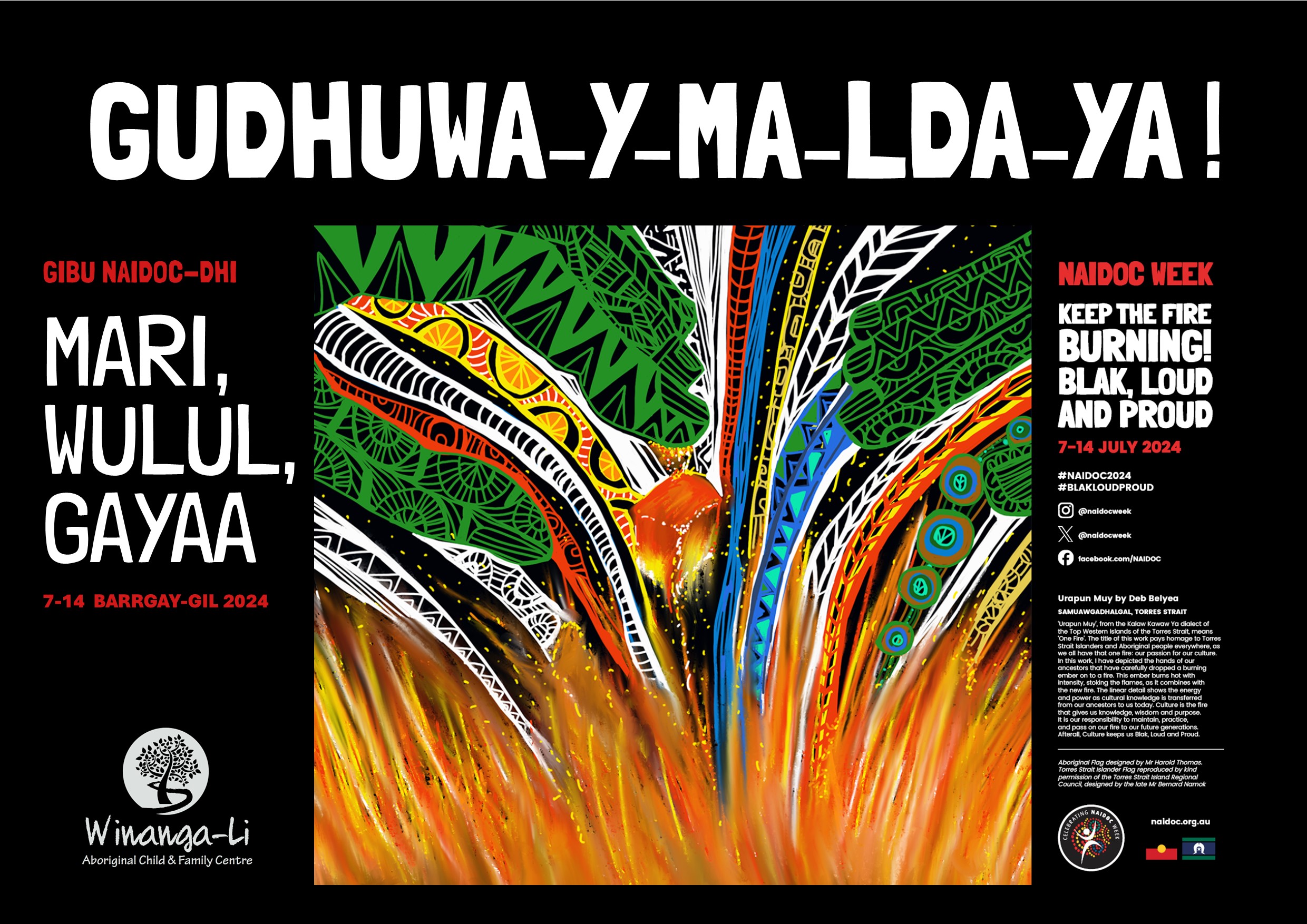
Download a pdf here: NAIDOC-poster_2024_A3-GR.pdf
2023
"For our Elders"
Wayamaa - Elder/s (this is the word used in our area)
-gu - for
ngiyaningu - our
A translation of a special welcome for Tintinhull School's NAIDOC assembly can be downloaded here: 2023-07-18_Tintinhull-NAIDOC-welcome.pdf
Click to download a sound file by James (Gindjurra) Hogbin:
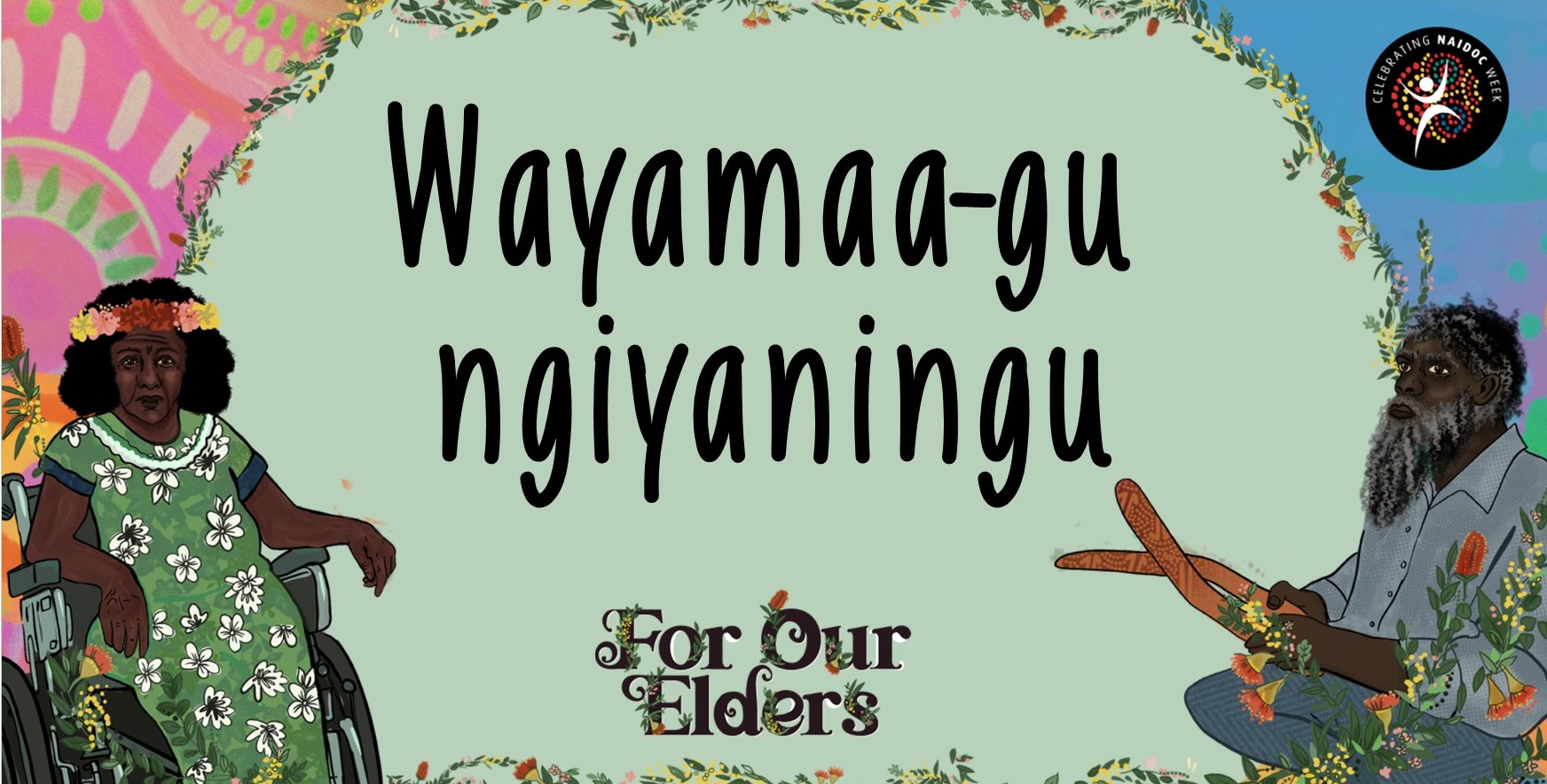
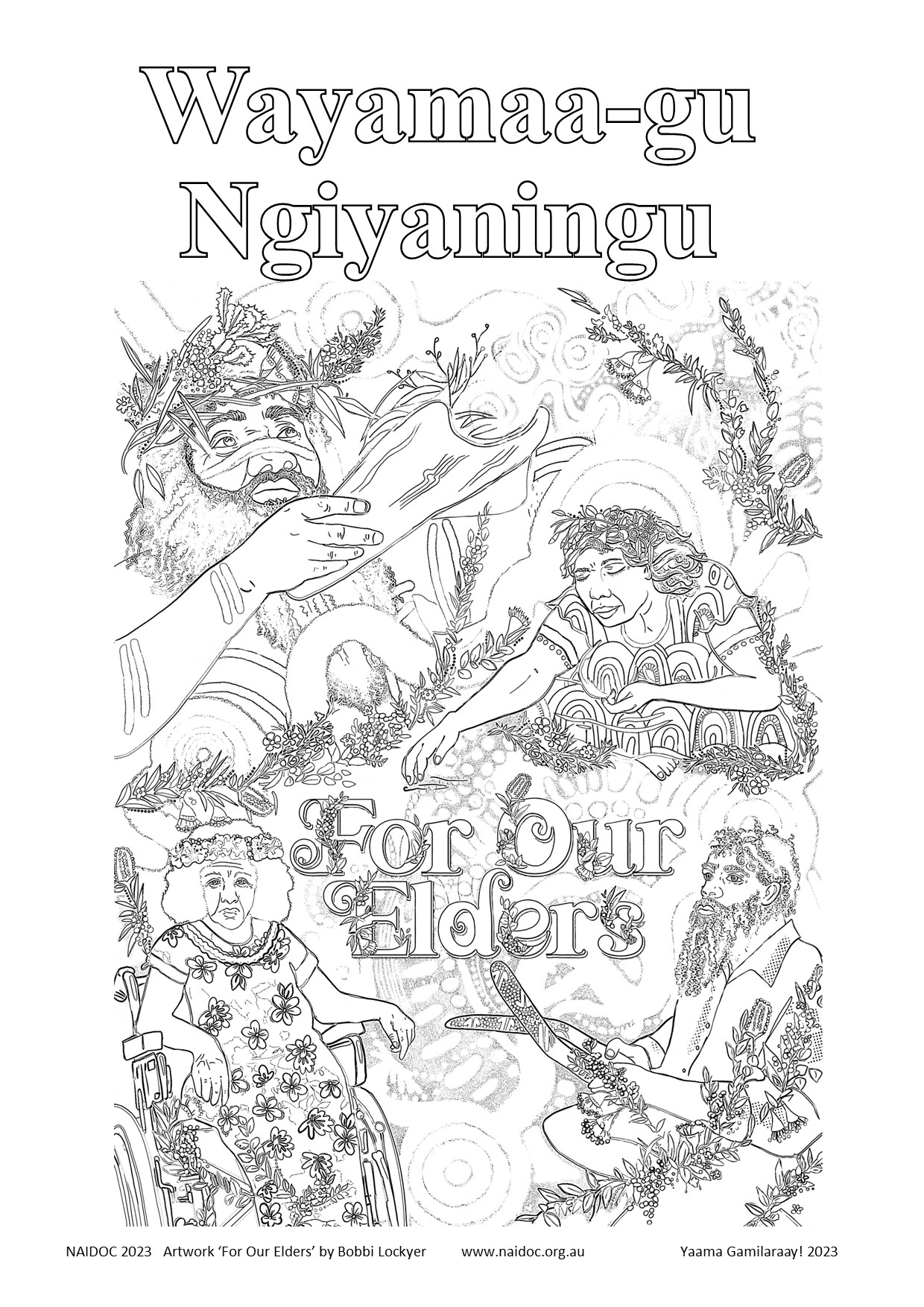
Download a pdf of this colouring-in sheet: For-our-Elders-colouring-in.pdf
2022
"Get up! Stand up! Show up!"
Our translation of this year's theme:
Warra-ya! (GYY): The command form of warra-y ' (will) get up', 'stand up'
Dhurra-la! (GYY): The command form of dhurra-li '(will) come up'
 Here is a video with Gundjuraa (James "Frog" Hogbin):
Here is a video with Gundjuraa (James "Frog" Hogbin):
https://www.youtube.com/shorts/sGi5zZ0Hbbs
Posters
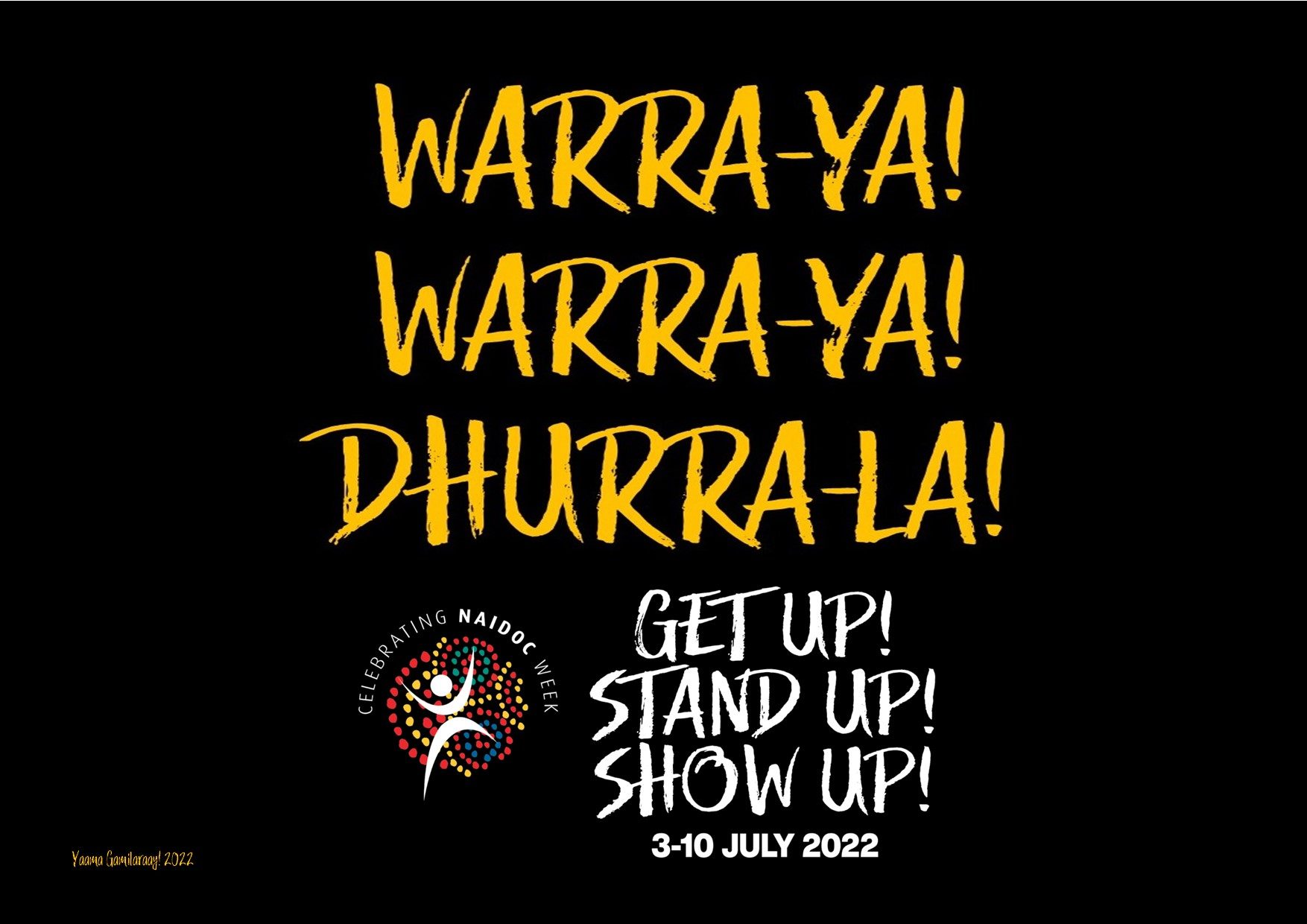
Download a pdf version: NAIDOC-2022_words-only.pdf
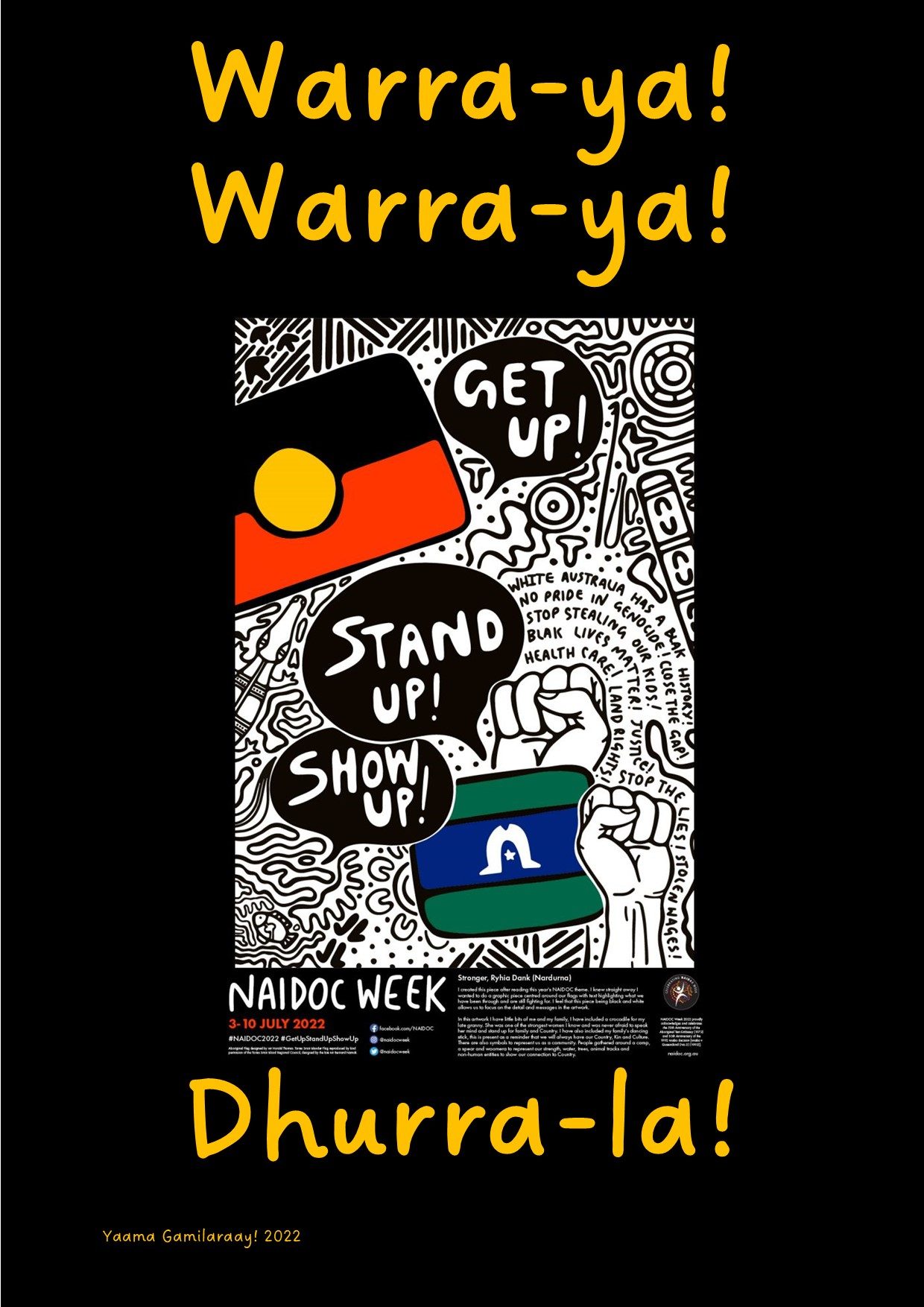
Download a pdf version: NAIDOC-2022_with-poster-and-GYY.pdf
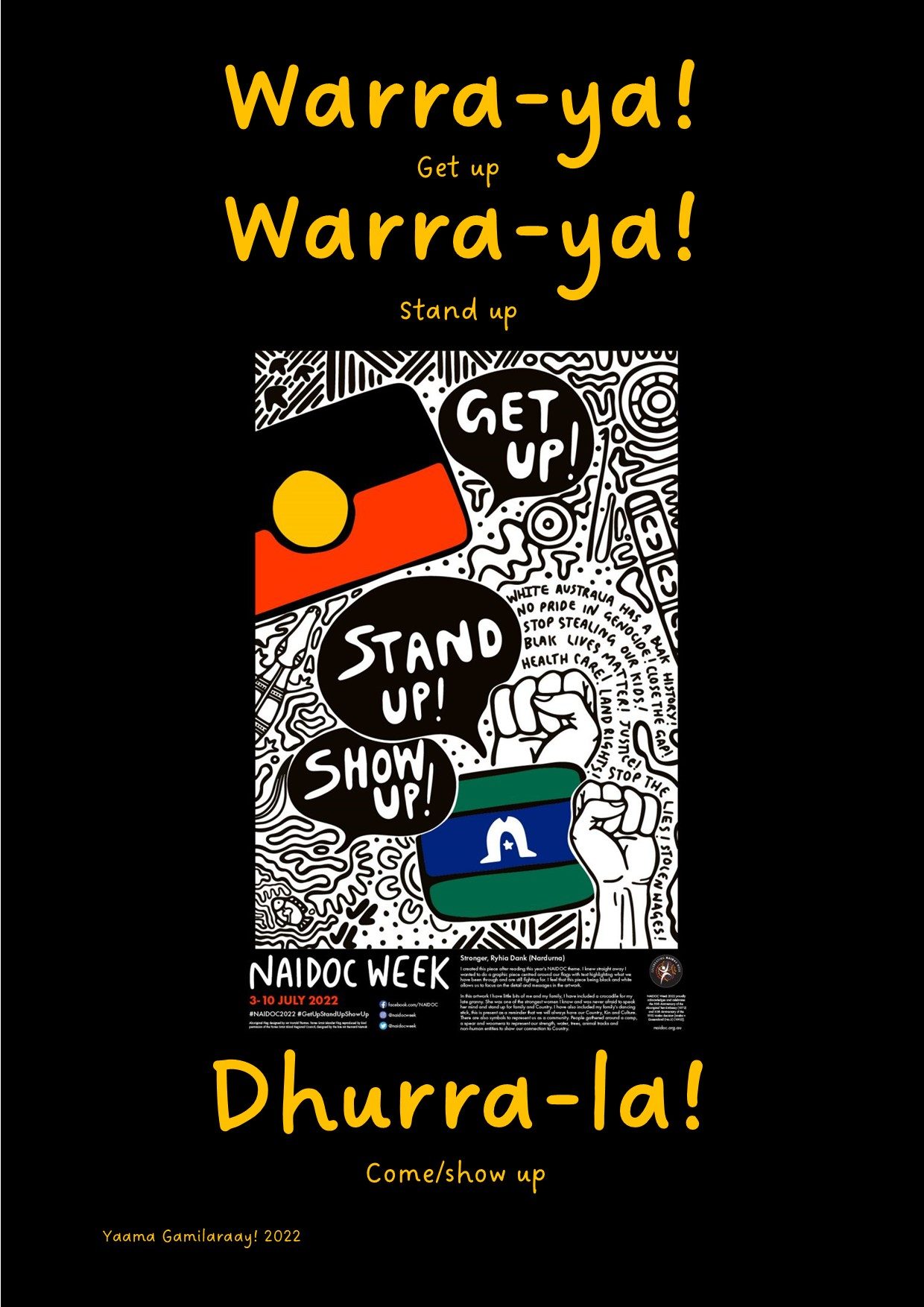
Download a pdf version: NAIDOC-2022_with-poster-GYY-and-English.pdf
2021
"Heal country"
Maaruma-la (maayuma-la in Yuwaalaraay) means ‘Heal!’, or ‘Let’s heal!’ The dictionary meaning of maaruma-li is ‘fix, heal, make better’, from maaru ‘well, carefully’ and ma-li turning it into a verb, so maaruma-li is ‘make well’. The -li ending in the dictionary is for the future, which changes to -la when it is a command.
There are several words for ‘country’ in Gamilaraay and Yuwaalaraay. Of course the English meanings only correspond roughly to the Gamilaraay meanings, so you may like to check the dictionary for more details and/or talk to Elders about the particular meanings and significance for them.
Gamilaraay artist Dawnie has drawn us a beautiful colouring-in picture, based on one translation of the NAIDOC theme ‘Heal Country!’ Walaaybaa Maaruma-la! Dawnie has given us an explanation of the meaning of the parts of the picture, which we have included.
Download a pdf of the colouring-in sheet: Walaaybaa-Maaruma-Li.pdf
2020
We have made a Gamilaraay and Yuwaalaraay version of the 2020 poster with one translation of the 2020 NAIDOC theme in English:
Always was,
Always will be.
There are many ways to translate the theme into Gamilaraay and Yuwaalaraay. For John’s discussion of some of the options, see the Gamilaraay Yuwaalaraay Guladha website here.
In this translation we are using yaliwunga in Gamilaraay and dhugay in Yuwaalaraay, “for all time”.
Gamilaraay and Yuwaalaraay do not have separate words for “was” or “will be” because they are included in the word as suffixes, which we show using hyphens following the way they are written in the dictionary. We are using warra-y, meaning “stand”. The past continuous is warra-y-la-nhi (“were standing”), and the future continuous is warray-y-la-y (“will be standing”).
Yaliwunga/Dhugay
Warra-y-la-nhi,
Warra-y-la-y.
You can also download higher resolution pdf files for printing as posters:

